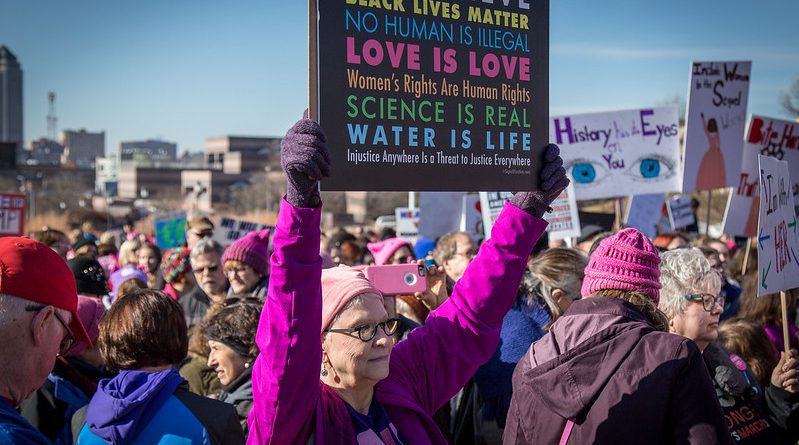Focus on Feminism: The United States
Mariah McCloskey
Editor in Chief
Feminism: the theory of the political, economic, and social equality of the sexes. While sometimes perceived as a word women do not want to be associated with, the simple fact is that feminism is a movement for equality and freedom. The equality that women have been fighting to gain for hundreds of years.
The Suffrage March was the first suffragist parade in Washington, D.C., organized by the suffragist Alice Paul for the National American Woman Suffrage Association. One day before the inauguration of Woodrow Wilson, more than 5,000 women descended on Washington to fight for the vote.
Thousands of suffragists marched down Pennsylvania Avenue in Washington, D.C. According to the Smithsonian, there were about half-a-million spectators lined the streets. Despite being heckled and harassed by the crowd, the march was enormously memorable; six years later Congress passed the 19th Amendment, extending the franchise to women nationwide.
Feminism in the US has led to widespread female education, female health services, equal opportunity in the workplace, and both body and voice liberation. In 1948 the United Nations created the Universal Declaration of Human Rights, stating that everyone had the opportunity and the need to be treated equally, regardless of race, religion, or gender. This was official documentation that women were people, and in addition, people deserving of basic human rights. While not all nations adhere to the UN’s standards, it was a huge milestone for the fighting feminists.
In 1963, Betty Friedan published The Feminine Mystique identifying “the problem that has no name.” According to USHistory.org, Friedan had the courage to say the problem was that many women did not like the traditional role society prescribed for them. Friedan’s book struck a nerve, and in 1966, Friedan, and others formed an activist group called the National Organization for Women.
In the 21st century, there is a global uprising of women. They are leading global campaigns against the key issues that are particular to women – sexual violence, pregnancy discrimination and gender-based wage inequities. When NOW organized a March for Women’s Lives in 1992, Casey v. Planned Parenthood, the Supreme Court case that most observers believed would lead to a “5-4 majority striking down Roe,” according to ThoughtCo, Justice Anthony Kennedy later defected from the expected 5-4 majority and saved Roe.
When a second March for Women’s Lives was organized, it was led by a broader coalition that included LGBT rights groups and groups specifically focusing on the needs of immigrant women, indigenous women and women of color. The turnout of 1.4 million set a D.C. protest record at that time and showed the power of the new, more comprehensive women’s movement. But women standing up for themselves did not end at the turn of the century.
On January 21, 2017, more than 200,000 people rallied in Washington, D.C. to protest what they feared would be a Trump presidency that would endanger women’s, civil and human rights. Other rallies were held across the nation and around the world. The #MeToo Movement began to pick up a following later in the year as a response to sexual assault allegations against Hollywood producer Harvey Weinstein. It focused on sexual assault and harassment in the workplace and elsewhere.
These women believed their politics were feminist because, as NACLA reports, “feminism proposes a personal and collective way of life that rejects unequal power relations not only among the sexes but also in society as a whole.” They are a large constituency that seeks to build a kind of feminism that is rooted in basic rights and conditions of life and from which they “seek to develop proposals for overall change.”
Feminist superheroes have flown over the house of the patriarchy and raised the female flag, creating safe passage for those behind them. They claim independence and power for women and create a safe place for those who feel that they do not have any.



